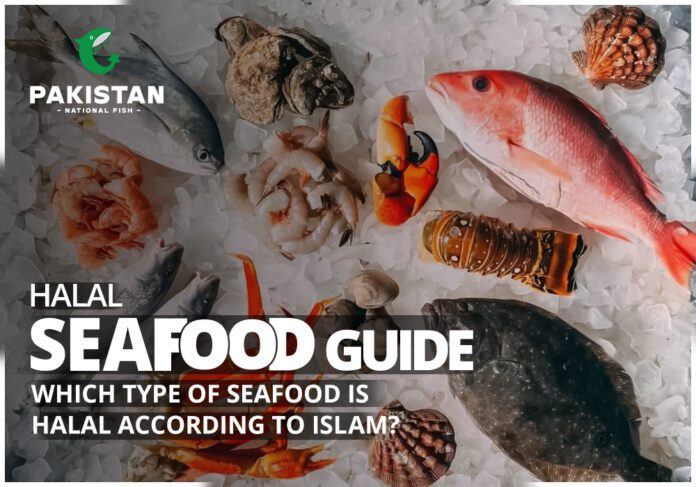Allah has blessed us with a diverse range of land and sea creatures that nourish us and provide halal food. However, under Islamic law and various schools of thought, there are varying opinions on what types of seafood and fish are considered halal.
In this blog, we will discuss which seafood is halal in Islam and whether can Muslims eat shellfish or not.
Halal Seafood List in Islam
• Freshwater Fish
• Saltwater Fish
• Shellfish
• Tuna
Tuna is a halal fish. However, there are a few factors to consider before selecting and eating tuna fish. Determine the source of the tuna. If it was captured in the wild, it’s likely to be halal. However, if it was farm-raised, there is a potential that non-halal feed was utilised, so the tuna may not be halal.
Second, even if the tuna comes from a halal source, it can be stained with non-halal chemicals during processing or packing. This is why it’s important to look for certification from a reputable Islamic organisation.
Is All Seafood Halal?
The majority of seafood is regarded as halal in Islam, particularly fish with scales like salmon, tuna, and cod, which are acceptable according to all religious traditions. Shrimp and other shellfish are also commonly accepted, although because they are predators, crabs and lobsters are not considered halal by most Islamic scholars.
Various opinions exist about sea animals like as squid, octopuses, and predatory fish (such as sharks); some scholars believe they are halal, while others view them as makruh (discouraged) or haram. Since it is forbidden in Islam to harm amphibians, including frogs, they are considered haram. For clarity on particular kinds of seafood, it is essential to speak with a reliable expert.
Why Is Fish Halal in Islam?
According to Islamic regulations, fish is halal since it is regarded as pure and clean. Since fish naturally die outside of water when captured, they do not need to be ritually slaughtered (zabiha) like land animals do. The Quran and Hadith’s teachings, which allow for the consumption of permissible seafood without any restrictions, serve as the foundation for this exemption.
Furthermore, fish are naturally acceptable since they lack dangerous features like eating blood or carrion. Since fish with scales satisfy all requirements for cleanliness and fitness for Islamic food, scholars generally agree that they are halal. Here are some significant characteristics of fish:
- Rich in Protein: Fish is a good source of high-quality protein, which is required for muscle growth and repair.
- Omega-3 Fatty Acids: Many fish, including salmon and mackerel, contain omega-3 fatty acids, which promote heart and brain function.
- Vitamins and Minerals: Fish contains critical nutrients such as vitamin D, B12, iodine, and selenium, which are necessary for overall health.
- Flavour: Fish can be served in a variety of ways, including grilling, frying, baking, and steaming, to suit a wide range of tastes.
Are Prawns Halal or Haram in Islam?
Most Islamic scholars regard prawns or Jhinga fish to be halal since they are aquatic creatures and fit under the Quran’s category of permitted seafood. Schools like Shafi’i, Maliki, and Hanbali commonly allow eating without issue.
However, some Hanafi scholars describe prawns as makruh (discouraged) rather than haram because they are not considered typical fish. Regardless, many Hanafi scholars consider them halal. To ensure clarity, follow the ruling of your particular scholar or school of thought.
Are Lobsters Halal or Haram in Islam?
Lobster is considered halal by many Islamic scholars, particularly from the Shafi’i, Maliki, and Hanbali schools, as it is seen as a lawful sea creature. These schools generally permit the consumption of shellfish and say that lobster is halal.
However, some Hanafi scholars view lobster as haram or makruh due to its scavenger nature. Despite this, other Hanafi scholars allow its consumption.
Conclusion
In Islam, seafood is generally regarded as halal, particularly fish with scales such as salmon, tuna, and cod. Many scholars, particularly those of the Shafi’i, Maliki, and Hanbali schools, consider shellfish like prawns, crabs, and lobsters to be halal. However, certain Hanafi scholars may regard certain shellfish as makruh (discouraged) due to their scavenger nature.
While fish is plainly halal due to its purity, some scholars consider squid and predatory fish like sharks to be makruh or haram.


